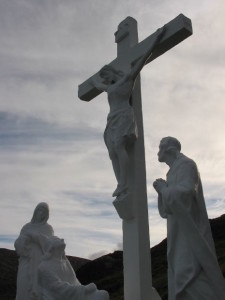Have you ever been persecuted?
In His final moments with the disciples, Jesus said, “If they persecuted Me, they will also persecute you” (John 15:20).
If you live in America, you probably haven’t given persecution much thought, because it hasn’t been a common experience in our sheltered world. After all, our constitution guarantees us freedom of religion.
However, in recent years, the winds have changed. Animosity and hostility toward those who take a stand on Christian convictions is rapidly becoming more acceptable, even approved by some. Those who don’t condone acts that are an abomination to God are increasingly targets, both socially and legally.
If change continues, we could soon see more and more American Christians openly persecuted for their faith.
We need to prepare for battle, lest we be caught unawares if, or when, the attack becomes personal. To learn how to prepare, let’s look at someone who has gone before us and remained faithful to God.
Job suffered personal attack from Satan and discouraging judgment from his friends, and yet he stood faithful. Like Job, our battle is also with Satan, against “spiritual forces of wickedness in heavenly places” (Eph 6:12).
Most people would give up on God if they suffered the loss and misery that Job did. They would decide that God wasn’t powerful or that He didn’t care. Where did Job find the strength to maintain his trust in God?
When it se emed the onslaught against him would never end, Job said, “I have made a covenant with my eyes; how then could I gaze at a virgin?” (Job 31:1). In the verses that follow, Job references many situations where he managed to walk with integrity in his daily life.
emed the onslaught against him would never end, Job said, “I have made a covenant with my eyes; how then could I gaze at a virgin?” (Job 31:1). In the verses that follow, Job references many situations where he managed to walk with integrity in his daily life.
Consequently, I believe, “gaze at a virgin” is a conceptual term. It seems to refer to the idea, “How could I be unfaithful to God?” “How can I consider turning from Him to even consider something else?”
Job linked that with “I have made a covenant with my eyes.” In essence, Job said, “I made a binding covenant before God to be faithful to Him; how then could I be unfaithful?”
In the Bible, covenant is full of meaning that we often miss. A covenant is a two-way commitment, a reciprocal giving of all that you have and are. He gave himself to God in covenant and was therefore confident that he could trust in God in return.
Job trusted God. He did not understand the trials or know when or how they would end, but he knew that God is faithful.
In today’s culture, we don’t think in terms of a total commitment which places complete trust in another. Independence is important to us. We value our own identities, ideas, strengths, freedoms, and rights. Consequently, when in crisis, rather than trusting in God, we tend to draw from deep within ourselves to meet the challenge.
And sometimes we aren’t strong enough for the challenge.
God has not changed. He will carry us just like He did Job. He promised to be our provider and protector too–if we place our trust in Him and obey Him, rather than leaning on our own strength and understanding.
If we want to be prepared for trials in life (persecution or life happenings), like Job, we need to make a covenant with our eyes now, before our faith is severely tested. We need to surrender ourselves to God, with a covenant commitment that He is our all.
The beautiful part is that God longs for that kind of commitment. He longs for a relationship with us where we depend on Him for every thing, every day. If we develop such an intimate relationship with Him today, when the crisis comes, we will know how to trust in Him.
Like Job, we will be able to stand firm in our faith. But it won’t be because we are so strong or so tough, it will be because we will know that we are cradled in the arms of the One whose love for us is perfect and who is sovereign over all.
He is faithful to the covenant. If we keep our eyes on Him, He will carry us through whatever life brings.
“For the eyes of the Lord move to and fro throughout the earth that He may strongly support those whose heart is completely His.” (2 Chron. 16:9a)
There is no need to fear of trials or persecution. Instead, we need to draw near to our Savior and Lord. We need to covenant with Him.